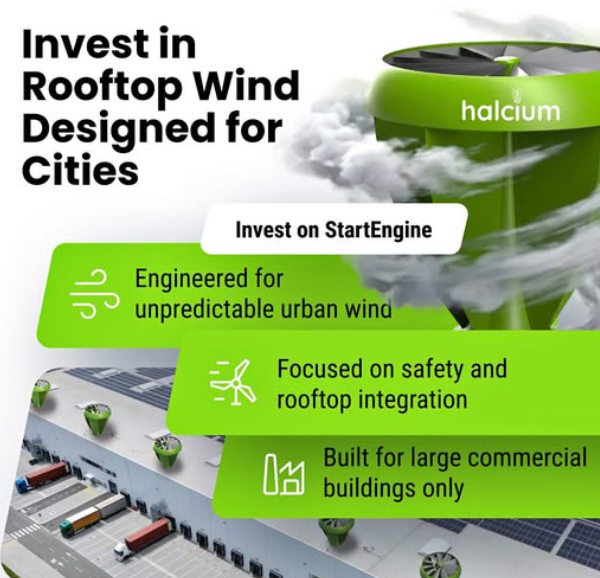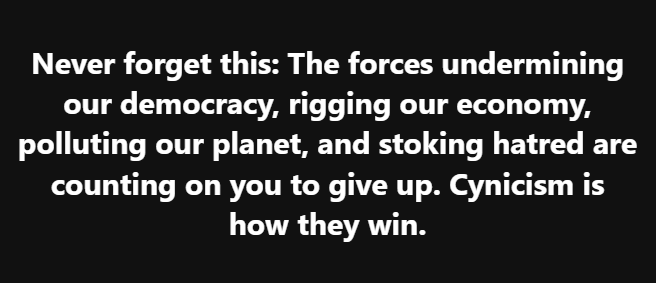Sustainable Aviation Fuel
Sustainable aviation fuel (SAF) in Netherlands
The Netherlands, like many other countries, has recognized the importance of reducing greenhouse gas emissions from the aviation sector.
To address this concern, the introduction of Sustainable Aviation Fuel (SAF) has gained prominence in the country. SAF is an alternative to traditional fossil-based aviation fuel and is produced from renewable sources.
The Netherlands has been actively working towards promoting the use of SAF to reduce carbon emissions and mitigate climate change impacts. Several initiatives and policies have been put in place to facilitate the adoption of SAF in the aviation industry. These efforts align with the country’s broader sustainability goals and commitment to the Paris Agreement.
One notable initiative in the Netherlands is the “Green Deal Sustainable Aviation” signed in 2019. This agreement involves collaboration between the Dutch government, airlines, airports, and research institutes to accelerate the development and deployment of SAF. The aim is to achieve a 14% SAF blend for all flights departing from Dutch airports by 2030.
To support the production of SAF, the Netherlands has invested in research and development, innovation, and infrastructure. Funding programs and grants have been established to encourage the production and use of SAF. Additionally, the government has implemented tax incentives and exemptions to stimulate investment in sustainable aviation technologies.
The Netherlands is also part of international collaborations and initiatives focused on promoting SAF. For example, the country actively participates in the European Union Aviation Initiative for Research (Clean Sky 2) and the Dutch-initiated “GoodFuels SkyBNR Project,” which aims to develop sustainable aviation fuels and infrastructure.
Furthermore, airports in the Netherlands have taken steps to enable the use of SAF. Amsterdam Airport Schiphol, for instance, has facilitated the availability of SAF and established dedicated infrastructure to promote its usage.
The introduction of SAF in the Netherlands signifies the country’s commitment to reducing the carbon footprint of the aviation sector. By promoting sustainable alternatives to traditional aviation fuel, the Netherlands aims to contribute to global efforts in combating climate change and achieving a more sustainable future.
Fact and data Sustainable aviation fuel (SAF) in Netherlands
Green Deal Sustainable Aviation: In 2019, the Netherlands signed the “Green Deal Sustainable Aviation” agreement, which aims to achieve a 14% SAF blend for all flights departing from Dutch airports by 2030.
Investments and Funding: The Dutch government has allocated funding for research, development, and innovation in sustainable aviation fuel. Grants and incentives have been established to support the production and use of SAF.
GoodFuels SkyBNR Project: The Netherlands initiated the “GoodFuels SkyBNR Project,” which focuses on developing sustainable aviation fuels and infrastructure.
Amsterdam Airport Schiphol: Schiphol Airport, the largest airport in the Netherlands, has taken steps to enable the use of SAF. They have facilitated the availability of SAF and established infrastructure to promote its usage.
International Collaborations: The Netherlands participates in European collaborations and initiatives, such as the European Union Aviation Initiative for Research (Clean Sky 2), which aim to advance sustainable aviation fuels and technologies.
Company who support Sustainable aviation fuel (SAF) in Netherlands
Several companies in the Netherlands are actively supporting the use and development of Sustainable Aviation Fuel (SAF).
Here are a few notable examples:
KLM Royal Dutch Airlines: KLM has been a pioneer in promoting SAF and has made significant investments in its production and usage. They have conducted SAF-powered flights and have set targets to increase SAF usage in their operations.
Neste: Neste is a Finnish renewable fuel company that supplies sustainable aviation fuel to various airlines globally. They have collaborated with Dutch airlines and airports to provide SAF in the Netherlands.
SkyNRG: SkyNRG is a Dutch company dedicated to developing and supplying sustainable aviation fuels. They have partnered with airlines, airports, and other stakeholders in the Netherlands to promote the use of SAF and have been involved in several initiatives and projects.
GoodFuels: GoodFuels is a Dutch sustainable biofuel company that supplies advanced biofuels for various sectors, including aviation. They have worked with airlines and airports in the Netherlands to enable the use of SAF and have been involved in research and development projects.
Shell: Shell is a multinational energy company that has been actively investing in and developing sustainable aviation fuel. They have partnered with airlines and airports globally to supply SAF and have conducted SAF-powered flights.
These are just a few examples of companies supporting the adoption and development of SAF in the Netherlands. There may be other companies, both domestic and international, involved in similar efforts to promote sustainable aviation fuel in the country.
Conclusion for Sustainable aviation fuel (SAF) in Netherlands
The Netherlands has taken significant steps to promote and support the adoption of Sustainable Aviation Fuel (SAF) within its aviation industry.
Recognizing the need to reduce greenhouse gas emissions and mitigate climate change impacts, the country has implemented initiatives, policies, and collaborations to accelerate the development and usage of SAF.
The “Green Deal Sustainable Aviation” agreement, signed in 2019, sets a target of achieving a 14% SAF blend for all flights departing from Dutch airports by 2030. This commitment demonstrates the Netherlands’ dedication to reducing the carbon footprint of its aviation sector.
The Dutch government has allocated funding for research, development, and innovation in SAF, while also providing grants and incentives to encourage its production and use. Companies like KLM Royal Dutch Airlines, Neste, SkyNRG, GoodFuels, and Shell have actively supported SAF through partnerships, investments, and the supply of sustainable aviation fuels.
Airports, notably Amsterdam Airport Schiphol, have played a crucial role in facilitating the availability and infrastructure necessary for the usage of SAF.
Overall, the Netherlands’ efforts in promoting SAF align with its broader sustainability goals and commitment to international agreements like the Paris Agreement. By embracing sustainable alternatives to traditional aviation fuel, the Netherlands aims to contribute to global efforts in mitigating climate change and achieving a more sustainable aviation industry.
https://www.exaputra.com/2023/05/sustainable-aviation-fuel-saf-in.html
Renewable Energy
Rooftop Wind
 My doctor, who knows that I understand physics and renewable energy in particular, asked me today what I thought about wind turbines on boats.
My doctor, who knows that I understand physics and renewable energy in particular, asked me today what I thought about wind turbines on boats.
I explained that, since boats need their own ways to generate electricity, what is called “small wind” may make sense. Most ships have diesel-powered generators, and that’s an option for smaller craft as well, and solar is not an attractive option because of the small area.
Doctors generally don’t have time to kill, but he asked me further about small wind, to which I explained:
Because the area of a circle is proportional to the square of the radius, big is better. If you can build a turbine with a radius 100 times larger than a small one, you’re going to generate 10,000 time more power.
Because the power generated by a turbine is proportional to the cube of the wind’s velocity, if you can site a turbine in wind conditions that are 10 times those on your rooftop, with trees and other buildings slowing the wind down, you’re going to generate 1000 times more power.
So, as usual, the answer resides in physics and math. 1000 times 10,000 is 10 million, which is why we see huge turbines on structures that lift huge turbines high above the ground, and it’s why the small wind industry has essentially disappeared.
If you don’t understand elementary school math and high school science, and you have money to burn, the investment offered at left may be right for you.
Renewable Energy
Fox News and its Effects on American Civilization
 It’s interesting that there is no Fox News (or equivalent) in Canada.
It’s interesting that there is no Fox News (or equivalent) in Canada.
The Canadians have protections of free speech that are very similar to ours in the States, and, like the U.S., these rights are not absolute. One difference is that Canada prohibits gross misrepresentation, which, in this case means that presenting opinions and calling it “news” is against the law. Lies are fine; calling them “news” is not.
A possible name for a show with the same content might be “Conservative Viewpoints” or “The Way the Right Wing Sees the World.”
Where Canada protects its people from malicious bullshit, in America we say, “Money talks.”
Renewable Energy
Apathy in the Midst of Treason
 Former Labor Secretary Robert Reich makes an excellent point at left.
Former Labor Secretary Robert Reich makes an excellent point at left.
The constant onslaught of distractions coming out of Trump’s mouth is calculated make us give up striving for truth, honesty, and environmental responsibility.
We mustn’t quit.
-
Greenhouse Gases7 months ago
Guest post: Why China is still building new coal – and when it might stop
-
Climate Change7 months ago
Guest post: Why China is still building new coal – and when it might stop
-

 Greenhouse Gases2 years ago
Greenhouse Gases2 years ago嘉宾来稿:满足中国增长的用电需求 光伏加储能“比新建煤电更实惠”
-
Climate Change2 years ago
Bill Discounting Climate Change in Florida’s Energy Policy Awaits DeSantis’ Approval
-
Climate Change2 years ago
Spanish-language misinformation on renewable energy spreads online, report shows
-

 Climate Change2 years ago
Climate Change2 years ago嘉宾来稿:满足中国增长的用电需求 光伏加储能“比新建煤电更实惠”
-
Climate Change Videos2 years ago
The toxic gas flares fuelling Nigeria’s climate change – BBC News
-

 Carbon Footprint2 years ago
Carbon Footprint2 years agoUS SEC’s Climate Disclosure Rules Spur Renewed Interest in Carbon Credits

%20in%20Netherlands.jpg)




